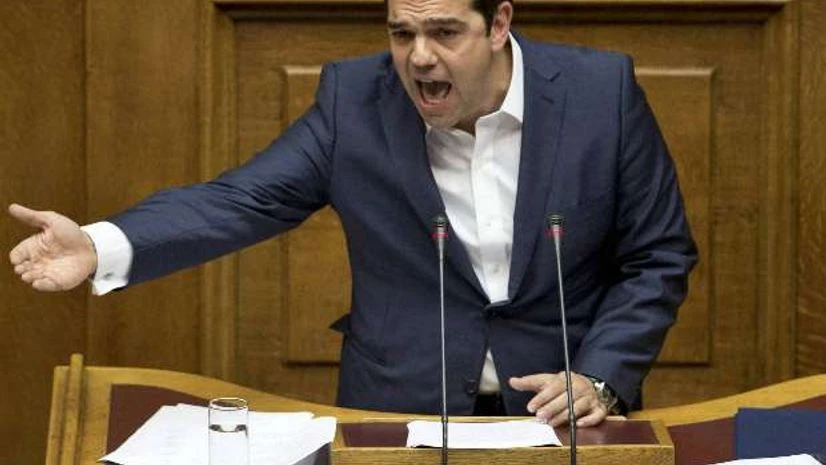The Greek parliament passed a vote of confidence in favour of the second government of Alexis Tsipras after a three-day debate on a programme that focused on completing the bailout, debt-restructuring and return to growth and social cohesion.
Out of a total 300 members, the vote, held Wednesday midnight, was supported by 155 legislators of Syriza and Independent Greek parties (forming the two-party coalition government) while the rest voted against it.
Tsipras had opened the debate three days ago while presenting his government's objectives for the next four years and closed it on Wednesday as the last speaker following speeches by seven leaders from other parties.
He asserted in his speech the need to conclude as early as possible the first review of the bailout in order to open the debate on the debt and also to obtain the necessary funds for bank recapitalisation.
Tsipras stressed it will be possible to return to growth, recover investor confidence and enter the markets in early 2017 only when these objectives are achieved and hence Greece must start implementing in the coming weeks the long list of measures agreed by the four institutions - the European Commission, European Stability Mechanism, European Central Bank and the International Monetary Fund.
Unlike his first speech on Monday that was dedicated to the government programme, Tsipras dedicated a good part of his second speech to launch a scathing attack on the conservative opposition, which he accused of having buried the consensus strategy that it proclaimed during the election campaign.
During the campaign, New Democracy leader Vanguelis Meimarakis had proposed to form a broad coalition government in order to take the country out of the crisis.
More From This Section
Meimarakis and Tsipras argued on the issue of debt relief and the opposition leader reminded him that the agreement reached with the partners in July is identical to the one signed in 2012, when the second bailout was closed, by then conservative prime minister Andonis Samaras.
Both bailouts contemplate the possibility of a debt relief in case Greece successfully approves the revision of its reform programmes and it is unsustainable.
Greek budgets include tax hikes and spending cuts by more than $4.5 billion, a debt increase to more than 200 percent of GDP, an economic contraction of 1.3 percent and a new rise in unemployment by almost one percentage point to 25.4 percent.
Despite these figures, the prime minister stressed the bailout funds and bank recapitalisation will put Greece on the path to growth with progressive measures.

)
